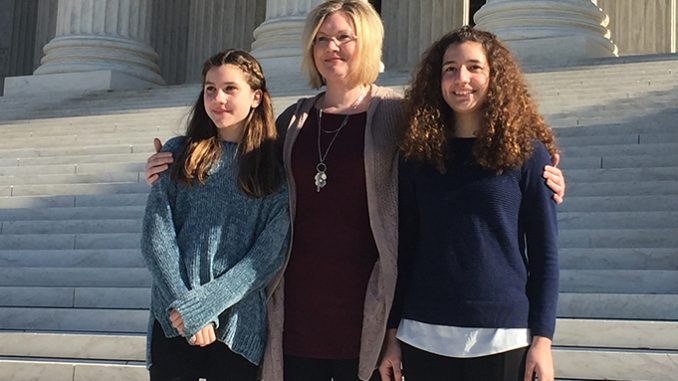
RALEIGH — On June 30, the U.S. Supreme Court changed the face of scholarships in Montana when it held that the state could not ban religious schools from participating in the state’s scholarship program.
The SCOTUS decision in Espinoza v. Montana Dept. of Revenue holds that “The application of the no-aid provision discriminated against religious schools and the families whose children attend or hope to attend them in violation of the Free Exercise Clause of the Federal Constitution.”
This decision by the SCOTUS overrules a Montana Supreme Court decision which dismantled a school choice program that used tax credits for students attending both secular and religious private schools. The case heard by the Montana Supreme Court involved the Montana Department of Revenue’s “Rule 1,” which was enacted not long after the scholarship program began and which prohibited families from using the scholarships at religious schools.
Three mothers sued the Department in Montana state court for blocking scholarship funds for their children’s tuition at Stillwater Christian School. The trio alleged that Rule 1 discriminated on the basis of their own religious views and because their chosen school was religious.
The SCOTUS ruling came down in a 5-4 split along ideological lines; the majority was held by five conservative justices, with the four progressives dissenting.
The dissenting justices said that, in some cases, state governments need to be free to discriminate against religious institutions so as to avoid programs that may run afoul of the First Amendment’s Establishment Clause, which prohibits the establishment of religion by Congress.
“A State need not subsidize private education, but once a State decides to do so, it cannot disqualify some private schools solely because they are religious,” Chief Justice John Roberts wrote in the majority opinion.
At the heart of the SCOTUS decision is what is known as a Blaine Amendment, which are state constitutional provisions that hail back to anti-Catholic bigotry in the 1880s. The original intent and purpose of a Blaine Amendment was to stop government funding of Catholic schools. In modern times, this has been expanded to include any religious school, with Blaine Amendments still found in 37 states.
Montana’s “no-aid” provision is an example of a Blaine Amendment, as it forbids the use of state aid or funds to “any church, school, academy, seminary, college, university, or other literary or scientific institution, controlled in whole or in part by any church, sect, or denomination.”
Justice Alito notes in the majority opinion that Montana’s original Blaine Amendment was enacted in 1889 and was modeled after the “failed Blaine Amendment to the Constitution of the United States.” Alito also noted that the failed federal amendment, which was named after House Speaker James Blaine, who introduced it in 1875, “was prompted by virulent prejudice against immigrants, particularly Catholic immigrants.”
The ruling arguably opens the door for future suits nationwide involving Blaine Amendments.
North Carolina has a variety of school choice options available to families, which were not impacted by the Espinoza v. Montana Dept. of Revenue ruling. North Carolina’s Opportunity Scholarships, which provide up to $4,200 a year to low-income and minority students towards tuition at the school of their choice, are similar in that they allow state money to pay tuition at religious schools. Those scholarships were met with a legal challenge five years ago and ruled constitutional.
“We have successfully defended that right in our own NC Supreme Court ruling in 2015, upholding the Opportunity Scholarship Program that currently provides over 12,000 NC students from low-income working-class families economic access to a private school of their choice,” said Mike Long, president of Parents for Education Freedom in North Carolina. “I applaud the US Supreme Court’s ruling that has now further solidified that right.”
Critics of the Opportunity Scholarship program include left-leaning organizations as well as Gov. Roy Cooper, who has twice tried to defund the program.




